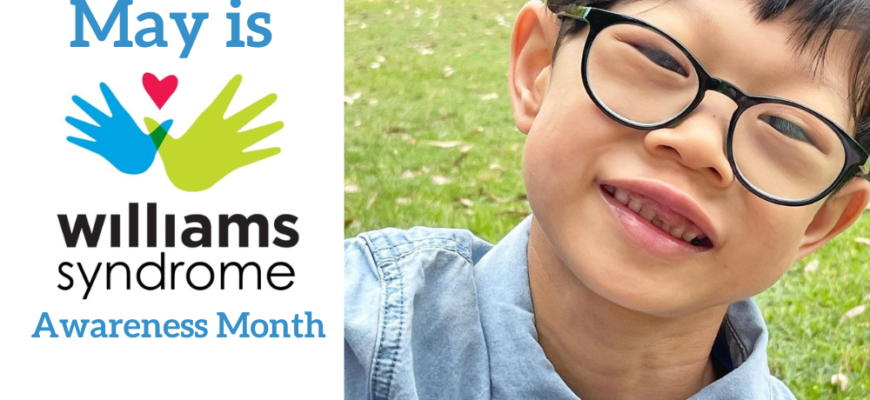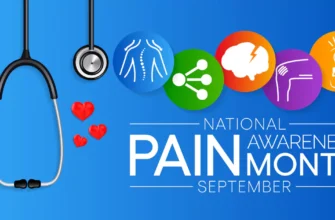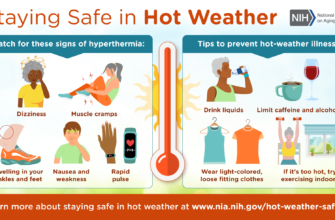- The Impact of Raising Awareness and Promoting Acceptance for Williams Syndrome – Enhancing Understanding, Empathy, and Inclusion
- Understanding Williams Syndrome
- What Is Williams Syndrome?
- Prevalence and Diagnosis
- Characteristics and Challenges
- The Importance of Awareness
- Raising Awareness
- Benefits of Awareness
- Video:
- Say “Hello” for Williams Syndrome
The Impact of Raising Awareness and Promoting Acceptance for Williams Syndrome – Enhancing Understanding, Empathy, and Inclusion
Williams Syndrome is a rare genetic condition that affects approximately 1 in 10,000 people worldwide. It is characterized by distinct facial features, cardiovascular problems, and developmental delays. While Williams Syndrome may present challenges for those affected, it is crucial to raise awareness and promote acceptance in society.
One of the reasons why Williams Syndrome awareness is important is because it can help dispel misconceptions and stereotypes surrounding the condition. Many individuals with Williams Syndrome have above-average verbal abilities and are highly sociable, yet they may struggle with certain cognitive tasks. By educating the public about the unique strengths and challenges associated with Williams Syndrome, we can foster an environment of understanding and support.
Another key aspect of Williams Syndrome awareness is early detection and intervention. Early diagnosis allows for timely intervention, which can greatly improve the developmental outcomes for individuals with the condition. With increased awareness, healthcare professionals and educators can improve their ability to recognize the signs of Williams Syndrome, leading to earlier intervention and better outcomes for those affected.
Furthermore, raising awareness of Williams Syndrome can also lead to increased research and funding for finding effective treatments and therapies. The more people know about this condition, the more likely they are to support research initiatives and advocate for the needs of individuals with Williams Syndrome. By allocating more resources to research, we can enhance our understanding of the condition and develop strategies to improve the quality of life for those affected.
In conclusion, Williams Syndrome awareness and acceptance are crucial for several reasons. By dispelling misconceptions, promoting early detection, and increasing research efforts, we can create a more inclusive society that supports the unique needs of individuals with Williams Syndrome. Together, we can raise awareness and promote acceptance, ensuring that individuals with Williams Syndrome have the opportunity to reach their full potential.
Understanding Williams Syndrome
Williams Syndrome is a genetic condition that is present at birth and can affect individuals throughout their lives. It is caused by a deletion of genetic material on chromosome 7, which leads to a variety of physical and cognitive differences.
Individuals with Williams Syndrome often have distinct facial features, including a small upturned nose, wide mouth, and full lips. They may also have a smaller stature, cardiovascular issues, and developmental delays. Despite these physical differences, individuals with Williams Syndrome typically have highly sociable and friendly personalities.
One of the most significant challenges for individuals with Williams Syndrome is their cognitive abilities. While they may have some intellectual disabilities and struggle with tasks such as math or spatial reasoning, they often excel in verbal skills and have a strong affinity for music. Their friendly nature and love for social interaction can make them excellent communicators and performers.
It is important to note that Williams Syndrome is a rare condition, affecting approximately 1 in 10,000 people worldwide. However, raising awareness and acceptance of this syndrome is crucial for creating inclusive and supportive communities for individuals with Williams Syndrome and their families.
By understanding the unique challenges and strengths of individuals with Williams Syndrome, we can work towards promoting inclusivity and providing the necessary support and resources for their success and well-being.
What Is Williams Syndrome?
Williams Syndrome is a rare genetic condition that affects approximately 1 in 10,000 people worldwide. It is caused by the deletion of a small piece of genetic material on chromosome 7. This deletion leads to a range of developmental challenges and health issues.
One of the key features of Williams Syndrome is a distinctive facial appearance, including a wide mouth, full lips, and a small upturned nose. Individuals with Williams Syndrome often have a friendly and outgoing personality, with an affinity for music and an excellent verbal ability.
However, Williams Syndrome also presents various physical and cognitive difficulties. People with Williams Syndrome may experience challenges with motor skills, such as delayed walking and poor coordination. They may also have learning difficulties and a tendency to have a lower IQ than their peers.
Despite these challenges, individuals with Williams Syndrome can lead fulfilling lives with the right support and understanding. Early intervention and ongoing therapies can help improve their motor skills, social interactions, and overall quality of life.
It is crucial to raise awareness and promote acceptance of Williams Syndrome to ensure that individuals with this condition are included and supported in all aspects of life. With greater understanding and acceptance, we can create a more inclusive and supportive society for everyone, regardless of their abilities.
Prevalence and Diagnosis
Williams Syndrome (WS) is a rare neurodevelopmental disorder that occurs in approximately 1 in every 10,000 people worldwide. It is caused by a deletion of genetic material on chromosome 7, which affects the development of various systems in the body and brain.
Diagnosing Williams Syndrome can be challenging due to its variable presentation and overlap with other conditions. However, there are certain physical and behavioral features that can raise suspicion for WS, such as a distinctive facial appearance, cardiovascular abnormalities, and intellectual disability.
Medical professionals typically use a combination of clinical evaluation, genetic testing, and imaging studies to diagnose Williams Syndrome. A thorough physical examination, including a detailed assessment of facial features and cardiovascular status, is often the first step. Genetic testing can confirm the presence of the typical deletion on chromosome 7, while imaging studies like echocardiograms can identify any cardiovascular abnormalities.
Early diagnosis is crucial for individuals with Williams Syndrome as it can lead to appropriate interventions and support. With a proper understanding of the syndrome, healthcare providers, educators, and families can work together to address the unique needs and challenges faced by individuals with WS.
In conclusion, Williams Syndrome is a rare genetic disorder that requires early diagnosis and intervention. Through increased awareness and understanding, we can promote acceptance and create a more inclusive society for individuals with Williams Syndrome.
Characteristics and Challenges
Williams syndrome is a genetic condition that affects individuals from birth. People with Williams syndrome have unique characteristics that set them apart from the general population.
One of the defining traits of Williams syndrome is a distinct facial appearance, which includes a small upturned nose, full lips, and a wide mouth. Individuals with Williams syndrome often have a mild to moderate intellectual disability, with strengths in verbal abilities and a highly sociable personality.
Another characteristic of Williams syndrome is a unique cognitive profile. People with Williams syndrome often display uneven cognitive abilities, with strengths in language and music, but challenges in visual-spatial and mathematical tasks.
Individuals with Williams syndrome may also have certain medical challenges. They often experience cardiovascular issues, such as heart murmurs and narrowing of the blood vessels. Sensory processing difficulties, such as hypersensitivity to sound or touch, are also common among individuals with Williams syndrome.
Despite these challenges, individuals with Williams syndrome have many strengths and talents. They are often described as friendly, empathetic, and outgoing. They have a natural affinity for music and often possess a great sense of humor.
It is important for society to be aware of the characteristics and challenges associated with Williams syndrome. By understanding and accepting individuals with Williams syndrome, we can create a more inclusive and supportive environment for all.
The Importance of Awareness
Awareness plays a crucial role in advocating for individuals with Williams Syndrome. It is essential to spread information and educate the general public about this rare genetic disorder.
By increasing awareness, we can combat the stigma and misconceptions surrounding Williams Syndrome. Many people may not even be aware of its existence, and this lack of understanding can lead to discrimination and isolation for affected individuals.
An informed society can provide a more inclusive environment for individuals with Williams Syndrome. It allows for better understanding and support from family, friends, educators, and healthcare professionals.
| Benefits of Awareness: |
| 1. Empathy and understanding from the community. |
| 2. Early diagnosis and intervention for affected individuals. |
| 3. Access to appropriate resources and support networks. |
| 4. Promotion of research and advancements in medical treatment. |
| 5. Increased funding for programs and initiatives. |
Through awareness campaigns, events, and educational materials, we can shed light on Williams Syndrome and create a more inclusive society. Every person deserves acceptance and equal opportunities, regardless of their genetic makeup.
Join us in raising awareness and promoting acceptance for Williams Syndrome!
Raising Awareness
Raising awareness about Williams Syndrome is crucial in order to improve understanding and acceptance of individuals affected by this genetic condition. By increasing awareness, we can help dispel misconceptions and stereotypes surrounding Williams Syndrome and promote a more inclusive society.
There are several ways to raise awareness about Williams Syndrome:
- Education: Providing accurate and up-to-date information about Williams Syndrome to the general public, healthcare professionals, and educators can help promote understanding and acceptance.
- Events and campaigns: Organizing events, such as fundraisers, awareness walks, and conferences, can help bring attention to Williams Syndrome and encourage community involvement.
- Media and social media: Utilizing various forms of media, such as news articles, documentaries, and social media platforms, can help reach a wider audience and spread awareness about Williams Syndrome.
- Support groups: Establishing support groups for individuals with Williams Syndrome and their families can foster a sense of community and provide a platform to share experiences and resources.
By actively raising awareness about Williams Syndrome, we can help create a more accepting and inclusive society for individuals with this condition.
Benefits of Awareness
Increasing awareness of Williams Syndrome can have numerous benefits for individuals with the condition, as well as their families and communities. Some of the key benefits include:
1. Early Diagnosis and Intervention: Awareness can lead to early diagnosis, allowing for early intervention and support. Early intervention programs can help children with Williams Syndrome develop critical skills and improve their overall quality of life.
2. Improved Understanding and Acceptance: Increased awareness can help people better understand and accept individuals with Williams Syndrome. This can lead to enhanced inclusion and social integration, as well as reduced stigmatization and discrimination.
3. Access to Specialized Services and Support: Awareness can help ensure that individuals with Williams Syndrome have access to appropriate medical, educational, and therapeutic services. This can help address specific needs and promote optimal development and well-being.
4. Support for Families: Awareness plays a crucial role in providing support to families of individuals with Williams Syndrome. It can help connect families with resources, information, and peer support networks, relieving some of the challenges they may face.
5. Advancements in Research and Treatment: Increased awareness can lead to greater research funding and advancements in understanding Williams Syndrome. This can pave the way for new treatments, therapies, and interventions, ultimately improving outcomes for individuals with the condition.
6. Empathy and Inclusion: By raising awareness, we can foster empathy and promote a more inclusive society. Understanding Williams Syndrome can help create a world where individuals with the condition are valued for their unique strengths and contributions.
Overall, spreading awareness of Williams Syndrome is crucial for ensuring that individuals with this condition receive the support, understanding, and opportunities they deserve.









